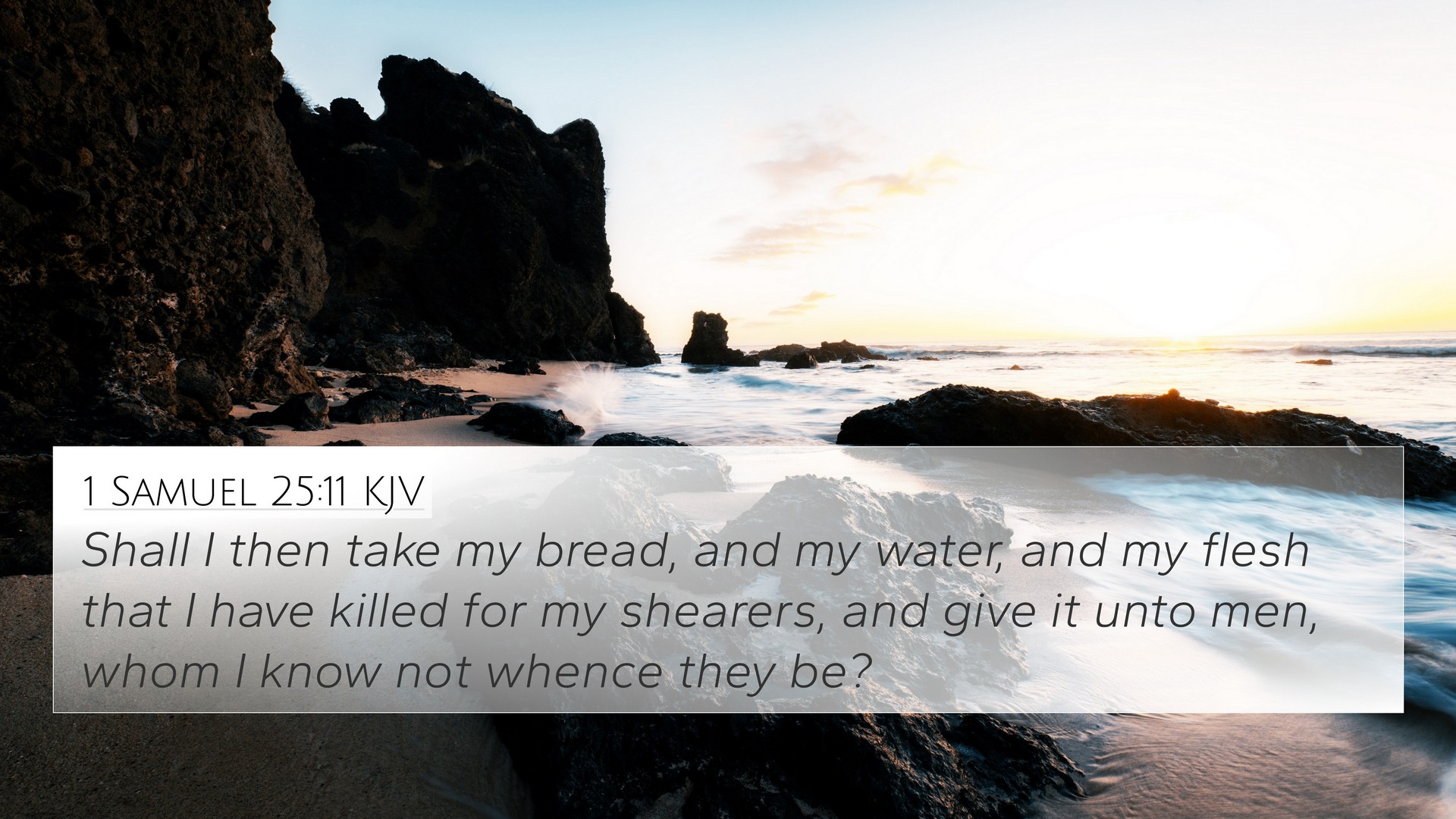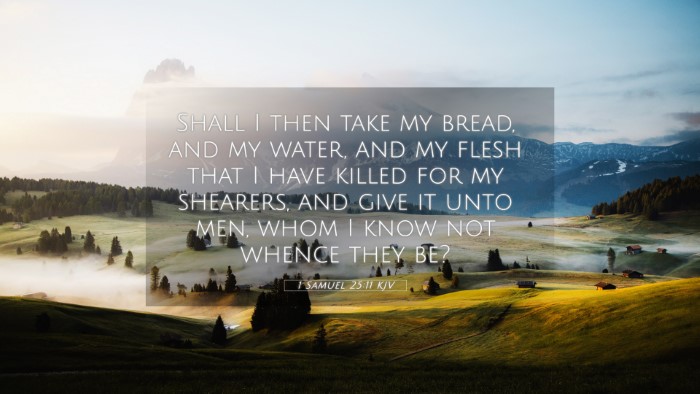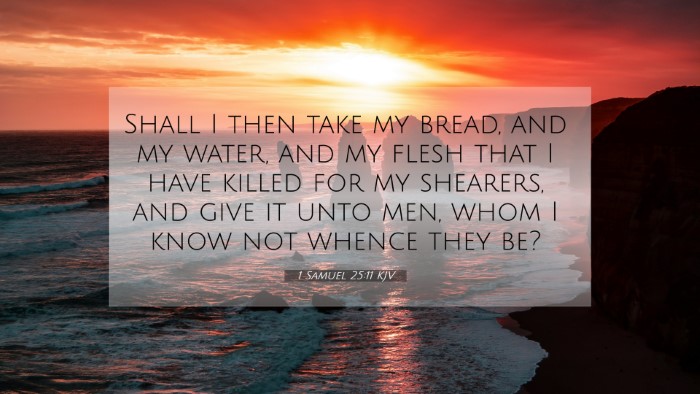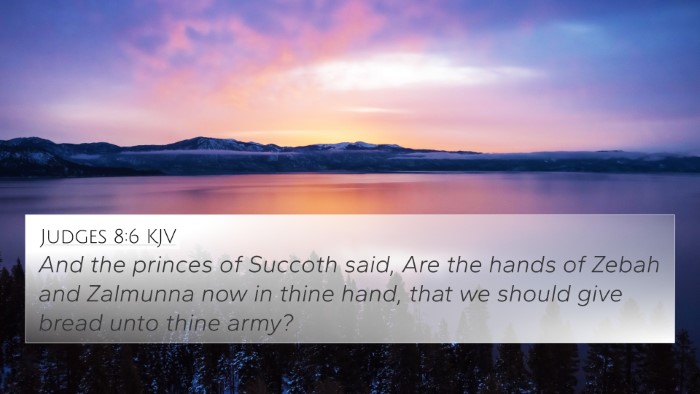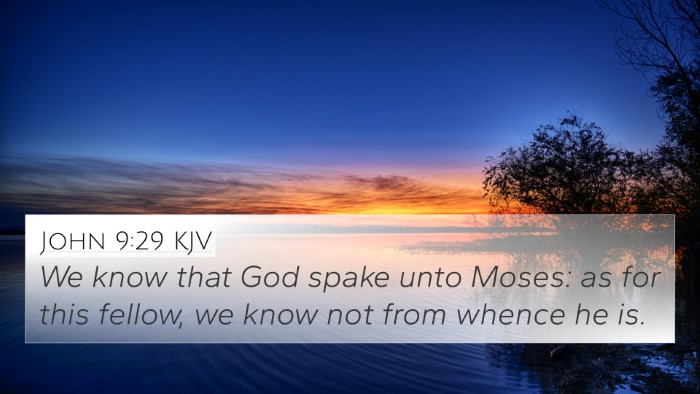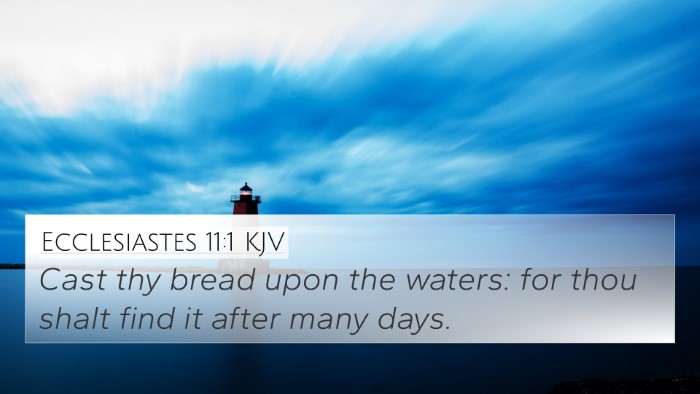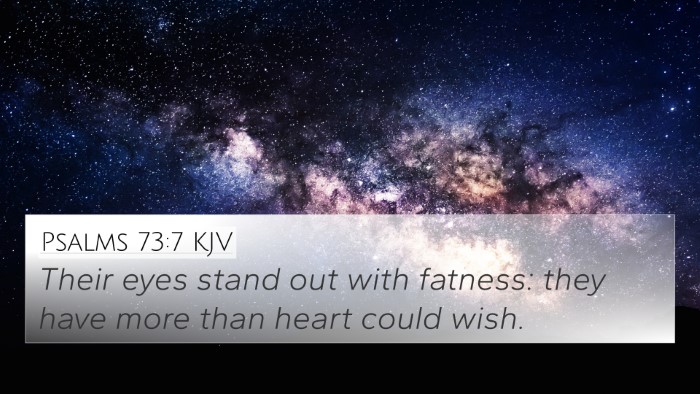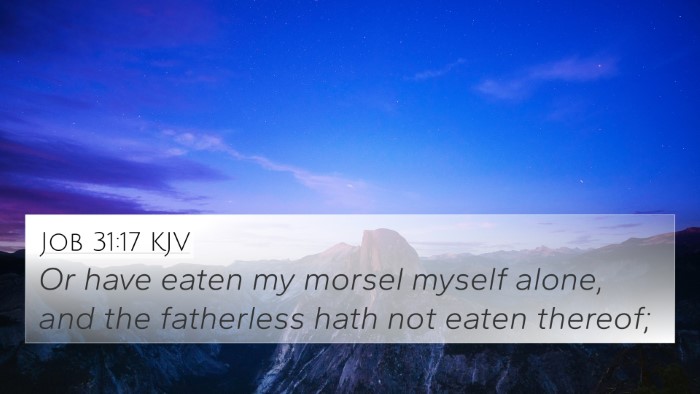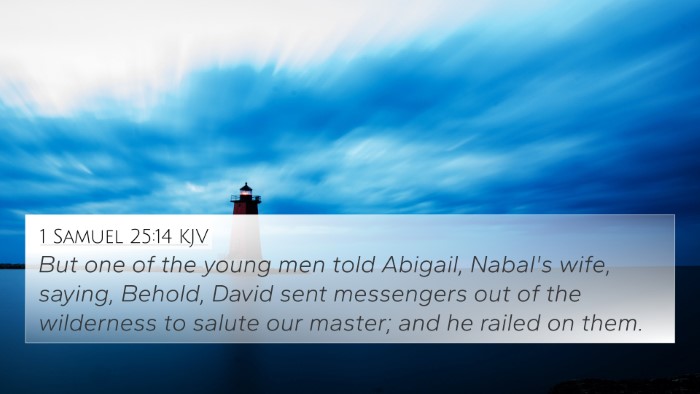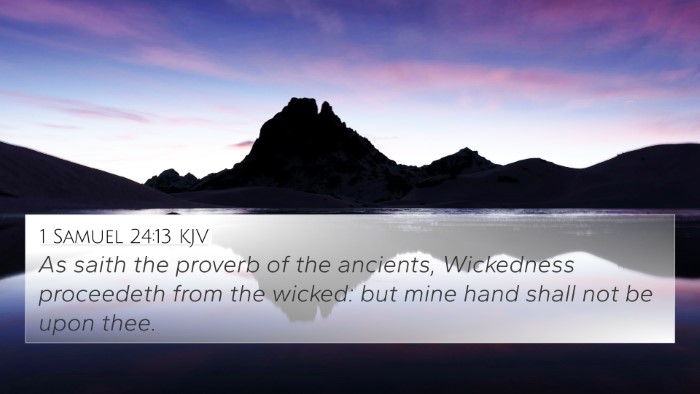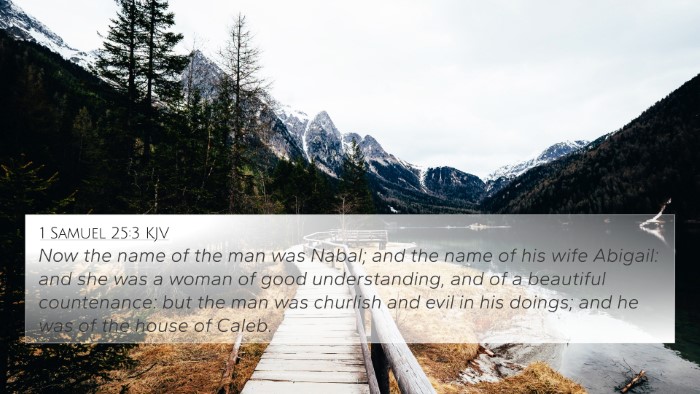Understanding 1 Samuel 25:11: A Comprehensive Analysis
The verse 1 Samuel 25:11 states: "Shall I then take my bread, and my water, and my flesh that I have killed for my shearers, and give it unto men, whom I know not whence they be?" This verse involves a dialogue between Nabal and David’s messengers, highlighting themes of hospitality, recognition, and the consequences of prideful disregard.
Contextual Background
In this chapter, we find David, while in the wilderness, seeking provisions from Nabal, a wealthy but surly man. Nabal's refusal to provide David and his men with basic necessities sheds light on the character of Nabal and sets up a contrast between himself and David, a future king of Israel.
Verse Analysis
- Nabal's Pride: Nabal embodies a proud heart. His refusal to aid David can be analyzed as an act of arrogance, suggesting that he sees no value in recognizing or aiding those he perceives as beneath him.
- David's Request: David's request for help emphasizes the expectation of hospitality, which was an important aspect of culture in the ancient Near East.
- Relevancy of Names: The name "Nabal" means "fool" in Hebrew, and his character exemplifies this definition through his actions and decisions.
Commentary Insights
This verse has been examined in several public domain commentaries:
- Matthew Henry: Henry comments on Nabal’s harshness and lack of generosity, viewing it as indicative of a deeper moral failing. He emphasizes that ingratitude often leads to dire consequences.
- Adam Clarke: Clarke notes the cultural significance of hospitality. He argues that Nabal's refusal to assist David's men not only reflects a personal flaw but also a breach of societal norms.
- Albert Barnes: Barnes highlights the potential dangers of pride and poor judgment. He presents Nabal’s answer as one that disregards human decency and the importance of community relationships.
Cross-References
1 Samuel 25:11 can be understood more deeply by exploring related Bible verses. Here are 10 cross-references that offer additional insights:
- Genesis 18:1-5: The example of Abraham’s hospitality towards strangers parallels the expectation of kindness that Nabal fails to uphold.
- Exodus 22:21: This verse commands kindness and hospitality towards strangers, contrasting with Nabal’s selfishness.
- 1 Peter 4:9: "Use hospitality one to another without grudging" reinforces the New Testament perspective on welcoming others, as opposed to Nabal's attitude.
- Proverbs 21:26: This verse highlights the folly of being greedy, akin to the attitude exhibited by Nabal.
- Matthew 5:42: Jesus teaches about giving to those who ask, presenting a stark contrast to Nabal's refusal to assist.
- Luke 12:15: Jesus warns against greed, similar to the attitude of self-preservation shown by Nabal.
- James 2:15-16: The doctrine of faith and works is emphasized, with a practical call to provide for those in need similar to what David sought.
- Romans 12:13: Paul instructs believers to contribute to the needs of the saints, a lesson Nabal ignored.
- Philippians 4:19: God promises to supply every need, suggesting a reliance on divine provision rather than solely on personal wealth.
- 1 John 3:17: The moral imperative to help those in need is illustrated, inviting reflection on Nabal's behavior.
Thematic Connections
In interpreting 1 Samuel 25:11, several themes emerge. The necessity of hospitality is a dominant theme, illustrated throughout scripture, reinforcing a communal ethic that Nabal fails to exemplify. Additionally, the consequences of pride and folly are evident, serving as a cautionary tale in biblical narrative.
Conclusion: Inter-Biblical Dialogue
1 Samuel 25:11 invites readers to reflect on the importance of kindness, humility, and recognizing the needs of others. Through careful cross-referencing and analysis of connected verses, one can glean deeper insights into the biblical teachings surrounding these values. Engaging in tools for Bible cross-referencing, such as concordances and study guides, provides further avenues for understanding how verses relate to each other, enriching one's faith journey.
